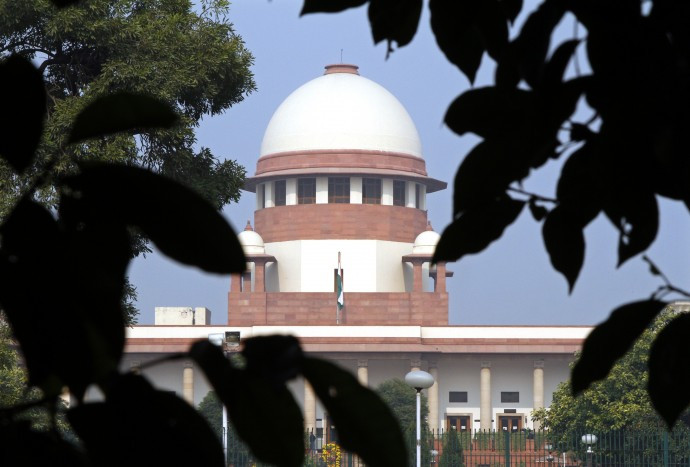India's top court recognises sex work as a 'profession'
The court said that they are "entitled to dignity and equal protection under law."
In a landmark order recognising sex work as a "profession," India's Supreme Court ruled that police should neither interfere nor take criminal action against adult and consenting sex workers.
The court issued the ruling after hearing a batch of petitions on the matter. The court had appointed a panel to look into the matter and accepted several of its recommendations while issuing the directions.
A three-judge Bench headed by Justice L. Nageswara Rao issued six directions on the protection of the rights of sex workers, according to a report in The Hindu.
"It need not be gainsaid that notwithstanding the profession, every individual in this country has a right to a dignified life under Article 21 of the Constitution," the court observed.
It said that sex workers are entitled to equal protection under the Indian law and directed that they should not be "arrested or penalised or harassed or victimised," during raids on brothels since sex between consenting adults is not illegal but running a brothel is.
The bench said that the child of a sex worker should not be separated from the mother merely on the ground that she is in the sex trade. "Basic protection of human decency and dignity extends to sex workers and their children," it noted.
The police have also been directed not to discriminate against sex workers and all kinds of help should be provided to those who have been victims of sexual assault.
"It has been noticed that the attitude of the police to sex workers is often brutal and violent. It is as if they are a class whose rights are not recognised," the court said, calling for sensitisation.
The media has also been directed to ensure that identities of sex workers are not revealed during "arrest, raid and rescue operations." The court also suggested that the Indian government must engage sex workers or their representatives to reform laws.
The Indian government has been given a period of six weeks to respond to the directives issued by the country's apex court. The Supreme Court has urged all levels of administration to follow the guidelines till an executive order is in force.























